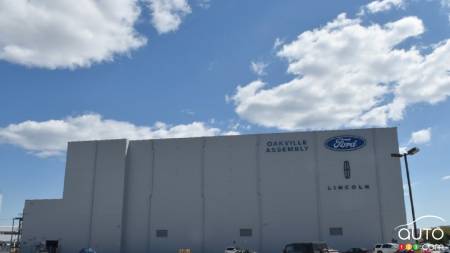There’s good news this week for workers at Ford's assembly plant in Oakville, Ontario. The automaker has announced it will invest $2.3 billion to renovate the plant to build Super Duty pickup trucks; a stamping section on the site will also be renovated.
Ford CEO Jim Farley said the U.S. plants that produce the Super Duty pickup are running at full capacity and can't keep up with demand. The increase in production at Oakville will enable Ford to increase capacity to “meet the large orders”, he added. Ford currently assembles Super Duty models in Ohio and Kentucky.
For Oakville plant workers, the news is indeed very good because they were due to be laid off for three years. Ford’s plan was to shutter renovated the plant, which produced the Ford Edge among other vehicles, so that it could assemble a new three-row electric SUV. Production was originally scheduled to start in 2025 on that model, but that has now been postponed until 2027, another of the changes automakers are making to their electric-model plans as consumer demand wavers.
The change of plans means that workers will be back at work sooner.
Ford expects initial production capacity to run around 100,000 Super Duty trucks per year.

The company didn't provide details about what's next for the Oakville plant beyond 2026, but it did say that current renovations will enable it to be "fully flexible", meaning it will be able to build Super Duty pickups equipped with different powertrains.
The Unifor union representing the plant's workers said the change of course for Oakville addressed the union's concerns that the two-year renovation period was “too long, too disruptive and too damaging to accept.”
“Working with our local unions and company management, we have reached an agreement that will not only get our members back to work sooner, but also protect their jobs in the future,” Unifor president Lana Payne said via a statement.
And as Automotive News Canada reports, the increase in pickup production will create jobs across the supply chain, including 150 at Ford's Windsor, Ontario engine complex and around 70 at the Kentucky truck plant, as well as another 70 at U.S. component plants.
Ford said it still plans to produce its three-row electric SUV starting in 2027, but did not specify where it will be built.





